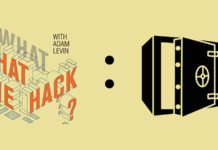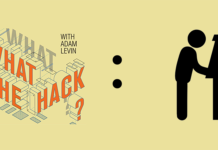

This week, Senator Dick Durbin (D-Ill) made a remarkably pithy statement on the floor of the Senate that Bank of America patrons should “vote with your feet, get the heck out of that bank.”
By now, everyone who reads, watches and listens knows that Bank of America instituted a five dollar per month charge for usage of its debit cards effective early next year, and, of course, that’s what prompted Durbin’s remark. While there will be no fee if you have at least $5,000 in a Bank of America account, have a mortgage with the bank, are a B of A employee, or only use the debit card for ATM transactions, any one purchase in a given month will ding you the five bucks. This is in addition to all other fees on its “basic” accounts—of which there are many types—and which can already carry fees as high as $12 per month if minimum balances are not maintained. Not wanting to miss out on the fee-for-all, Citibank also announced a substantial rate increase, hiking the minimum balance requirement for certain checking accounts from $6,000 to $15,000, else a $20 a month fee will be charged. They also announced that “EZ Checking” account holders will be charged $15 a month if they don’t maintain a balance of at least $6,000.
B of A and Citibank are not alone. A number of smaller banks have already announced the imposition of similar fees and many other banks have been testing them. Further, all of the big banks are considering all manner of fees, including debit card fees, to offset a number of revenue sources cut off by the passage of the Credit CARD Act, the Dodd-Frank Act and other consumer protection legislation.
But there’s been a fairly large stir directed at B of A because it was the first major U.S. bank to announce the debit card fee as a certainty, and to charge the highest number that’s ever been talked about for such fees. I guess “fairly large” is an understatement. Last week, a Fox Business News anchor cut up her debit card on camera. Yesterday, a 22-year-old customer delivered a petition with 153,000 signatures protesting the fee to a branch in Washington, D.C., just before she closed her accounts, cut up her debit and credit cards on the sidewalk and left with $400 in cash she said she was going to deposit in a credit union. Rep. Brad Miller (D-NC) has just introduced a bill to facilitate consumers closing accounts and moving their money to other financial institutions. (The Move Your Money project offers a comprehensive list of local financial institutions.)
Furthermore, Bank of America is the only large U.S. bank that still has “problems.” It’s effectively been bailed out twice in the past few years. First, as part of the 2008 bank bailout where it was one of the largest recipients of taxpayer largesse; and then just a few weeks ago, when Warren Buffett—the world’s most popular (and populist) octogenarian billionaire—invested $5 billion in the bank. He said recently in an interview that the bank’s problems persist and will take quite a while to solve—certainly a number of years rather than months. Those problems, which are derived from the mortgage meltdown and the real estate crash, have caused the bank’s stock to drop about 50% from its 2010 levels.
In keeping with the new Durbin-inspired trend of candor and brevity, B of A CEO Brian Moynihan justified the new fee by saying, “we have the right to make a profit.” (Translation—I think they need the dough).
B of A and the other big banks may well lose billions of dollars in revenue as a result of populist rage against institutional greed and corruption—as manifested by certain provisions of the abovementioned pieces of legislation that aimed to achieve greater accountability, certainty, transparency and fairness in the financial services sector. This includes the Durbin amendment—which, according to its author, was aimed at curbing the banks “excessive” profits relating to swipe fees. No doubt the number crunchers at B of A determined that instituting the fee will make them more money than they might lose from disgruntled customers who follow Durbin’s advice and “get the heck out of that bank.”
According to Bob Hammer, CEO of R. K. Hammer, a card industry advisory firm, B of A’s new debit card fee will generate an estimated $1 billion, “About half of what Durbin will cost them.”
Oddly enough, shortly after the announcement of the imposition of its new fee, B of A’s website mysteriously seemed to have a great number of problems and was actually nonfunctional for a number of days. The bank claims it was the result of site maintenance and heavy traffic. What say you?
When you think about it, Durbin and Moynihan are actually referring to the principles established more than three centuries ago by Adam Smith in his pioneering work “The Wealth of Nations.” In a democracy, capitalism has a few very simple rules, chief among them being that businesses can set prices and fees however they may like, and consumers can choose to go somewhere else if they don’t like them. Isn’t this what a free society and a competitive economy are all about? Nobody can tell the bank what to charge, and no one can force the consumer to pay it. There are lots of customers and lots of banks to choose from.
Unfortunately, not everybody remembered Adam Smith. On one of the Sunday talk shows, President Obama, responding to a question about what can be done about those fees, said “This is exactly why we need this Consumer Financial Protection Bureau that we set up that is ready to go,” Obama said. “This is exactly why we need somebody whose sole job it is to prevent this kind of stuff from happening.”
Whoops…
Unwittingly (and, as always, with good intentions) the President set back the cause of the CFPB dramatically (though he has since done some backpedaling). No one on either side of the aisle really wants an agency that can simply dictate fees. Later in the same interview the president also talked about such fees being administered “fairly and transparently.” He’s dead right on that one. It is within the government’s bailiwick to make sure that consumers are well informed, that disclosure of fees and risks is robust, and that unfair or deceptive practices are banned. But in a free society, the authority of any government should end right there.
Naturally, there’s a lot not to like about all of the new fees—B of A’s in particular, perhaps because the fee has certain sneaky features that evoke memories of so many other fees charged by banks and credit card companies. For example, if you don’t ever make a purchase in October using your debit card there’s no fee. But if you get cold chasing your kid around at 10 PM on Halloween, that three dollar latte will cost you eight. Okay, okay—but, at least everyone will know the deal. Whatever else is true about this new fee, it’s certainly not “hidden.” However, it’s manifestly unfair in the sense that it will affect those with better cash flow far less than those without. Indeed, the people who will be least likely to avoid the monthly fee are those with the fewest alternatives. This fee will be a lot harder to sidestep if you have a low limit credit card versus a high limit credit card, or have no credit card because you have lousy credit (because, perhaps, you lost your job due to the Great Recession).
But those are objections that consumers should make, not governments.
According to a recent survey, in 2011 for the first time in history credit card issuers earned more from fees than they did from interest on outstanding balances. This trend is likely to continue, and you should expect fees of every description to be increased, not to mention all of the new fees that can be conjured up going forward. I don’t like it anymore than you do, but I’d like to fight it with informed consumers seeking out clever and more efficient competitors, rather than by government price-fixing.
This article originally appeared on Credit.com.









